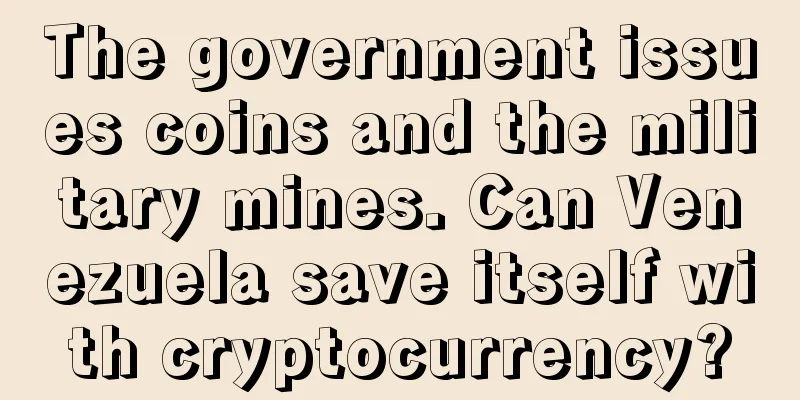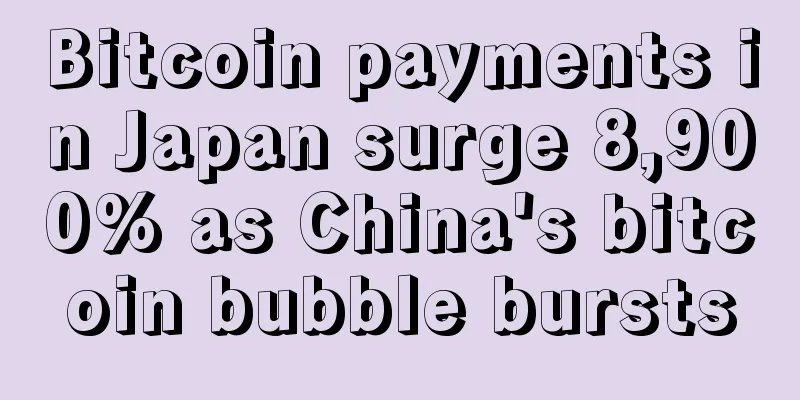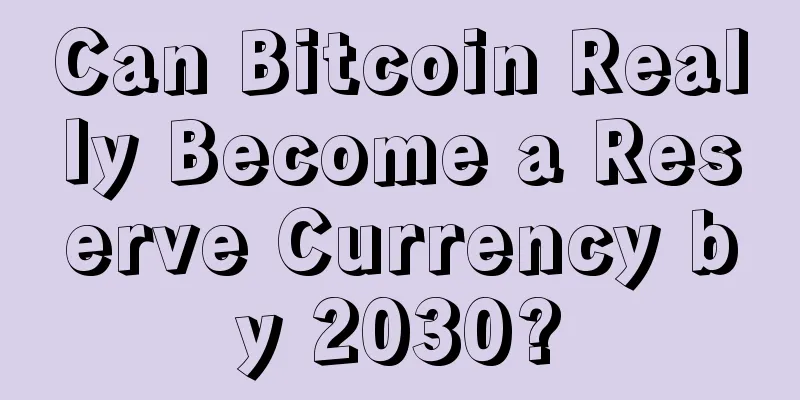The government issues coins and the military mines. Can Venezuela save itself with cryptocurrency?

|
Author | Deepchain66 Editor | Doorman Operation | Xiao Shitou Feng Qingyang Bitcoin ended November in its own way. On the evening of November 30, the price of Bitcoin suddenly soared, from around US$18,000 to a high of US$19,863, setting a new high this year. Bitcoin has reached a new high, attracting attention from all parties. On the same day, social media revealed that the field of Bitcoin mining also welcomed a special participant - the Venezuelan military. The 61st Battalion of the 6th Engineer Regiment of the Venezuelan Army posted a video on Instagram showing that the special forces turned the military camp into a huge mining center, installed ASIC mining machines, and even built a maintenance center to refurbish and repair old or damaged mining machines. This is also the first Bitcoin mining center built by the Venezuelan military, headquartered in the Fuerte Tiuna military barracks in Caracas. As the military of a country, what are the unknown reasons behind mining Bitcoins themselves? "State-issued currency "Venezuela, a country in South America that is both rich and poor. It is one of the world's major oil-producing countries, with oil reserves equivalent to half of the entire Middle East, and 80% of the country's GDP depends on it. Logically speaking, Venezuela, with its abundant resources, should be as rich as oil-rich countries such as Dubai and Saudi Arabia. However, since 2014, Venezuela's economy has deteriorated seriously: inflation has intensified, the value of the national currency, the Bolivar, has depreciated again and again, and hunger, disease, crime, and smuggling of immigrants have shrouded the land. Data shows that in 2018, Venezuela's inflation rate was as high as 830,000%. In 2019, the inflation rate fell, but was still close to 10,000%. This year, the inflation rate increased again, exceeding 40,000%. If these figures are not intuitive enough, the daily life of local people vividly and cruelly reflects the severity of inflation: People cannot use Bolivars to buy groceries or pay taxi fares because the amount of currency they need to carry is too large and the weight is too heavy; people have to queue up for 20 minutes to withdraw 5,000 Bolivars from an ATM, which is only equivalent to about $0.05; recently, it was learned that they are going to print a legal tender with a face value of 100,000 Bolivars, but it is not even worth a bottle of Coke. It can be said that in Venezuela, the legal currency is as cheap as paper, or even worse than paper. Perhaps because of the collapse of the legal currency system, cryptocurrency, a non-mainstream "currency", has grown in Venezuela. Some people call for using Bitcoin to evade foreign exchange controls; some try to use Bitcoin to buy daily necessities; the cryptocurrency Dash has even been recognized by more than 2,000 stores here... In January 2018, Venezuelan President Maduro announced to the world Venezuela’s official cryptocurrency plan: Petro, intending to use this move to reverse the nearly collapsed economy. The Petro was issued based on Ethereum, with a total of 100 million coins. Each Petro was backed by a barrel of Venezuelan crude oil, so the total value was as high as US$5.9 billion at the time. On February 21 of the same year, Venezuela officially launched the Petro, and users can purchase it by visiting the official Petro website. On the first day of the sale, Maduro said he had completed financing of $735 million. Since then, Maduro, having tasted the sweetness, has begun to promote the Petro with all his might. For example, the Petro was included in the banking category, workers were called upon to accept Petro as bonuses, and even people's daily wage expenses were once settled using Petro. What's more, Maduro is pushing for constitutional amendments with the intention of incorporating the Petro into the national currency. However, whether it is promotion on TV or striving for the "orthodox status" of the Petro in law, for the Venezuelan people, the Petro seems to be "forced" into their hands, and therefore, the Petro has not resonated with the market. More importantly, Maduro arbitrarily changed the setting of the Petro's anchoring to the oil market price and raised the price of the Petro at will, causing the Petro to be questioned. Mati Greenspan, senior analyst at eToro, once tweeted: "You can't have your cake and eat it too. If the price of Petro is tied to the price of oil, then the President can't promote the exchange rate on TV. This is not how the free market works at all. Petro is not a cryptocurrency!" On March 19 of that year, Trump issued an order prohibiting U.S. citizens and entities, as well as individuals and entities within the United States, from participating in cryptocurrency transactions initiated by Venezuela and its agents, which was equivalent to a disguised sanction on the Petro. One of the reasons for the ban is that the United States believes that the Petro should be regarded as a bond based on the credit of the Venezuelan government. As a result, the Petro has been a big deal but has done little to alleviate Venezuela’s inflation crisis. Military MiningAs a negative example of government cryptocurrency, the Petro is obviously no longer able to shoulder the responsibility of "revival". Perhaps because of this, Venezuela has turned its attention to Bitcoin mining? Unlike general large miners who purchase mining machines in bulk to mine, the Venezuelan military's mining machines are mostly obtained through raids and seizures. In July of this year, the Venezuelan National Guard intercepted a truck that violated the COVID-19 blockade at a toll booth in southern Guyana and seized 315 sets of Antminer 9 mining devices worth US$79,000 from the truck. Coincidentally, after September this year, Venezuelan law enforcement agencies also confiscated a large number of mining equipment, which were also used in Bitcoin mining. Since many mining machine parts are dismantled from older and damaged equipment, they have also set up a refurbishment center for this purpose. In short, through various means, the Venezuelan military has collected a batch of Bitcoin mining machines to mine Bitcoin. In fact, as early as September this year, the Venezuelan government announced that Bitcoin mining is legal. Earlier, Venezuela's private Bitcoin mining business has been developing in full swing. It can be said that Venezuela is the most prosperous country in the Bitcoin mining industry in South America. In 2018, Elite Fixtures, an American power supply company, released a research report that compared the average cost of mining in 114 countries around the world. Among them, Venezuela is the country with the lowest electricity cost on the list. The mining cost of one Bitcoin is only US$531, which is a far cry from China's US$3,172 and South Korea's US$26,170 during the same period. In addition to mining, the application of cryptocurrency in Venezuela is also worthy of attention. According to Reuters, a 32-year-old Venezuelan developer wanted to buy a $10 mobile phone battery on Amazon, but since he could not pay in US dollars, he exchanged his local currency for some Bitcoins from a local friend, and then used Bitcoin to buy an Amazon gift certificate and successfully purchased the battery he wanted. In addition, a Venezuelan professor from a university also called on Venezuelans to adopt Bitcoin as a currency through an online video. He said: "I am teaching people to use Bitcoin to bypass foreign exchange controls." In addition, the cryptocurrency Dash is currently accepted by more than 2,000 merchants in Venezuela, compared to just over 200 in the United States. On November 30 this year, the American pizza chain Pizza Hut began accepting cryptocurrency payments in all its stores in Venezuela. Bitcoin mining and the use of cryptocurrencies as a means of payment, it seems that Venezuela has become a hotbed for cryptocurrencies. However, the University of Cambridge in the UK believes that although Venezuela is the largest Bitcoin producer in Latin America, the reason behind this "achievement" is very regrettable because it is completely based on the country's abnormal economy. As for the issue of using cryptocurrency for payment, a Venezuelan college student gave his opinion to Reuters, "Using Bitcoin instead of the national currency is not a political issue, but a survival issue." "Blockade from the Western World "On November 25, Argentine football star Diego Maradona died of a heart attack at home at the age of 60. Maduro sent out several tweets in succession, deeply remembering his "brother" Maradona. "The passing of this football legend leaves us with a lot of sadness, he was a brother and a great friend to Venezuela... You will always remain in my heart and in my mind, and I have trouble finding words to express my feelings at this moment," Maduro wrote. The reason why Maduro misses a foreign football player so much, in addition to Maradona's contribution to the field of football, is more importantly that Maradona once provided help to Venezuela, which was in trouble both internally and externally. The reason why Venezuela is in the current situation of extreme depreciation of the French currency and the impoverished life of the people is not only that the international crude oil price has fallen again and again since 2014 and 2015, which has hit Venezuela's export economy hard. More importantly, Venezuela has also encountered sanctions and blockades from the Western world represented by the United States. There is an unwritten rule in the modern history of the world: where there is a lot of oil, there is no peace. For big and powerful countries, the possession of oil may lead to political confrontation, while for small and weak countries, it may lead to war and turmoil. It is for this reason that Venezuela, the "oil country" which currently has the largest proven oil reserves in the world, cannot escape the disaster. In 2013, the pro-Russian and anti-American Venezuelan President Chavez died, and his confidant Maduro came to power and continued Chavez's policies. However, as soon as Maduro came to power, he encountered many problems such as the decline in international crude oil prices and the depreciation of the domestic currency. On this basis, the United States, which has always been dissatisfied with Venezuela, took the opportunity to support opposition forces in Venezuela and further impose economic sanctions on Venezuela. Such as freezing Venezuela's oil branches in the United States, cutting off Venezuela's foreign exchange sources, and blocking Venezuela's oil transportation, in the hope of undermining Maduro's ruling power. After Trump came to power, he took tougher measures, such as refusing to recognize the Maduro government, freezing all of Venezuela's oil assets in the United States, and even taking actions to assassinate Maduro, which aggravated the difficulties of the Maduro government. If you observe carefully, you will find that several countries currently facing US sanctions are exploring ways to circumvent sanctions in the field of cryptocurrency. For example, North Korea, which has been speculated to have formed a hacker team to steal Bitcoin on a large scale, and Iran, which has been continuously issuing Bitcoin mining licenses to miners around the world, and the African country Nigeria was even once known as the country that loves Bitcoin the most. The above countries have all encountered similar situations as Venezuela to a certain extent, so they have all chosen cryptocurrencies such as Bitcoin. However, can the emergence of cryptocurrency really save them? "Cryptocurrency can't save Venezuela "I'm afraid it's difficult. Economics often defines currency based on its functions, while the value of currency is backed by the credit of the country. For example, after the collapse of the Bretton Woods system, if the US dollar wants to become the world's dollar, the United States must provide sufficient credit guarantees. Although the Venezuelan government has always emphasized that Petro is the first cryptocurrency issued by a sovereign state, it has even called on investors from all over the world to invest. But as mentioned above, the anchor price of Petro has been arbitrarily changed by the Venezuelan government, and the credibility of the Venezuelan government that endorses it is almost bankrupt. Therefore, Petro cannot bear the tasks of circulation, payment, and value storage. The government-promoted Petro has failed. Can cryptocurrencies such as Bitcoin and Dash save Venezuela from disaster? One reality that must be acknowledged is that cryptocurrency is far less convenient to use than legal currency, and its popularity is far lower than legal currency. Using cryptocurrency requires at least a smart device, a network operator to provide the network, and users with high technical literacy. These are all hard conditions and none of them can be missing. Today, only 40% of the population in Venezuela own smartphones. Although Dash has developed the function of editing text messages to check transfers and balances based on the current situation, it is still difficult to meet the daily cryptocurrency usage needs of Venezuelan people. In addition, because cryptocurrencies are decentralized and cannot be regulated, they are more likely to be used for money laundering and wealth transfer. In countries with severe inflation, the rich are more willing to transfer their wealth abroad through various channels. Without a strong regulatory response, choosing unregulated cryptocurrencies as a remedy could easily backfire and add to Venezuela’s already heavy economic burden. In addition, cryptocurrencies such as Bitcoin are often accompanied by extreme market conditions. If the Venezuelan people do not avoid risks in advance, it is very likely that their wealth will disappear in the repeated ups and downs. The most important thing is that whether it is cryptocurrency or legal currency, it is ultimately just a means of payment. For Venezuela, if it wants to completely reverse the economic downturn, it cannot be achieved by simply improving the means of payment. A good blacksmith must have strong tools himself. Perhaps for Venezuela, the most important thing is to revitalize the economy and stabilize prices. For Venezuela, cryptocurrencies such as Bitcoin are just icing on the cake, but they cannot provide timely assistance. However, this is not to say that Venezuela cannot be saved, but that cryptocurrency cannot save Venezuela. This article is originally written by DC News (ID: shenliancaijing) and is intended to convey industry information. It does not constitute any investment advice. Unauthorized reproduction is prohibited. |
<<: Bitcoin holds $19,000, but danger signs are emerging
Recommend
Is it good for a woman to have a red mole on her waist? What is the meaning?
It is generally difficult for people to find a mo...
How palm lines tell life in palmistry
Our fortunes in life, wealth, misfortune, and hap...
The exchange is too unreliable! What should I do with Bitcoin?
To prevent hacker attacks and security breaches, ...
US Treasury Nominee: Anti-money laundering is our priority in the cryptocurrency market
According to Coindesk, Brian Nelson, the Treasury...
What does the love line fork 13 mean?
Everyone knows that people's palm lines are d...
DTCC actively responds to blockchain technology challenges and is not afraid of changes in business models
The Depository Trust & Clearing Corporation (...
Wall Street is exploring Bitcoin's deeper technology
Although it has been several months since the tur...
What are the characteristics of a persistent person?
Everyone has different personalities. Some people...
How far can Bitcoin's star public chain Stacks go in the future
With the popularity of Bitcoin NFT protocol Ordin...
Who is the most suitable for investment?
Who is the most suitable for investment? When it ...
Palmistry of a married man who is still restless
Once women marry a man, they give their hearts and...
Do you know how your face changes?
Face is very important to us. After all, face is ...
The influence of eyebrows on women's mate selection
The influence of eyebrows on women's mate sel...
Can the mole on the neck be removed? Is it okay to have a mole on the back of my neck?
Every mole has its own meaning, and different mol...
What kind of face is lucky?
With more experience, you will find that the bles...









